Wärtsilä taps flexible generation in Power Development Plan VIII
The PDP8 which was approved in mid-May for the first time has introduced a new generation source called “flexible generation” into the future capacity mix, starting with 300MW by 2030 and increasing significantly up to 46,200MW by 2050. This presents opportunities for Wärtsilä to tap into the trend of flexible generation in Vietnam.
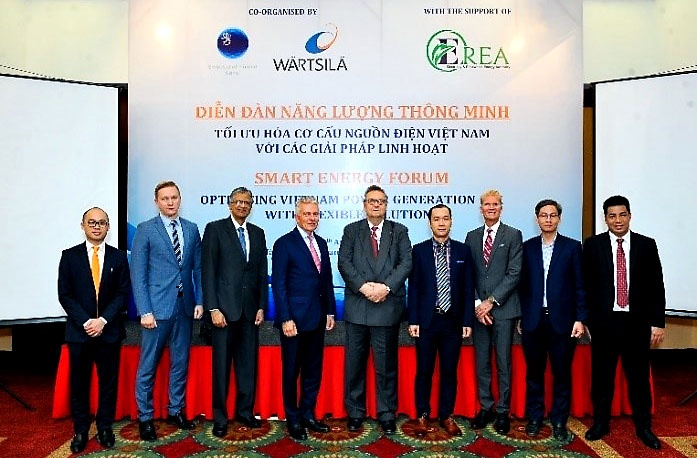 |
| Wärtsilä has actively promoted flexible ICEs in the Vietnam market |
Since its inception in Vietnam in early 2000s, Wärtsilä has successfully built around 10 power plants running on internal combustion engines (ICEs) in Vietnam, supporting industrial customers with reliable electricity. When the first feed-in tariff (FiT) for solar was issued in 2017, the company foresaw that there will be a strong demand for a new source of flexible generation in the power system as the share of renewable energy increases in the future.
Already from 2018, Wärtsilä engaged with all the stakeholders in the industry, including policymakers and private sector to share their global experience in modelling power systems, to recommend a decarbonization roadmap, to raise the importance of adding flexible assets into the system, and to introduce the latest ICE technologies and solutions.
“We are extremely glad to see that Vietnam has well recognised the importance of flexible generation in the PDP8 and the vital role that ICE as a flexible generation technology plays in supporting the country's energy transition," said Thanh Pham, a country manager of Wärtsilä.
Flexibility is critical for any power system with a high share of renewables. Flexible power plants running on ICEs are needed to balance the intermittency of renewables and ensure the system stability when there is no sun or wind for several hours and days. Currently, the North of Vietnam is experiencing a short-term challenge to meet its electricity demand, which could have a great impact on the economic growth of the region.
“Wärtsilä has the track-record and proven solutions to respond to challenges like this. Over the last few years, we have built many modular ICE power plants in the nearby markets such as Indonesia, the Philippines, Myanmar and Cambodia on a fast-track basis to help alleviate the power shortage issue," Thanh added.
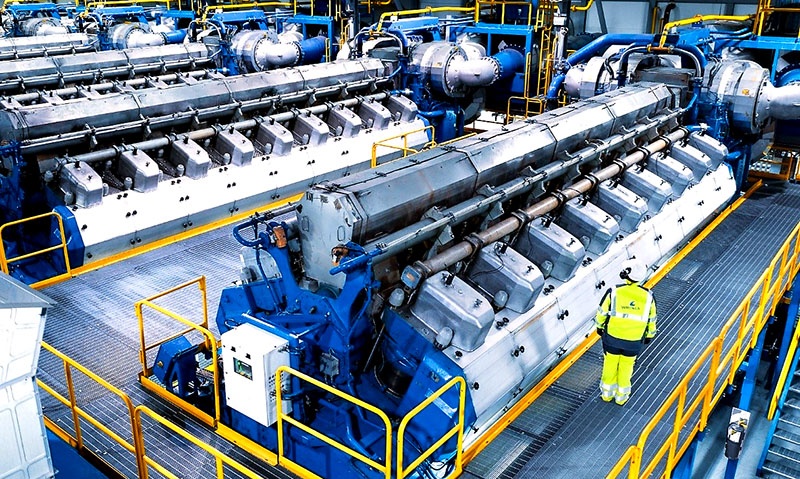 |
| The multi-unit ICE power plants to provide operational flexibility to the power system |
Vietnam is clearly the hotspot in the Southeast Asia region that has one of the highest electricity demand growths and also the fastest renewable energy penetration over the last five years. Asia is also a significant market for Wärtsilä as the company has installed about 2,200 power plants running on ICEs to provide fast electricity supply to meet the increasing demand and also balancing capacity to support the stability of the power systems.
Last October, Wärtsilä announced that the company would build a new 100MW gas power plant using 10 Wärtsilä 34SG ICEs in Japan. The fast-starting ICE engines will provide the grid balancing and peaking capabilities needed as Japan is aiming to increase its share of energy from renewable sources to 36-38 per cent by 2030.
The plant will participate in the new cross-regional balancing, which was launched in 2021 by the governmental authority to bridge the gap between electricity demand and supply. It will also replace a 100MW combined cycle gas turbine (CCGT) that was formerly located on the project site.
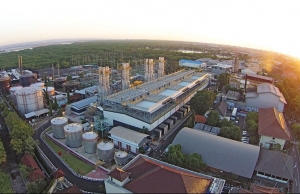 | Cost reductions possible with Wärtsilä’s expertise The energy market landscape is in transition and moving towards more flexible systems with a rapidly increasing share of renewables, declining inflexible baseload generation, and wider applications of storage technology. Jaakko Eskola, president and CEO of Finland’s Wärtsilä Corporation, told VIR’s Phuong Thu on how it can assist the country in achieving its renewables goals. |
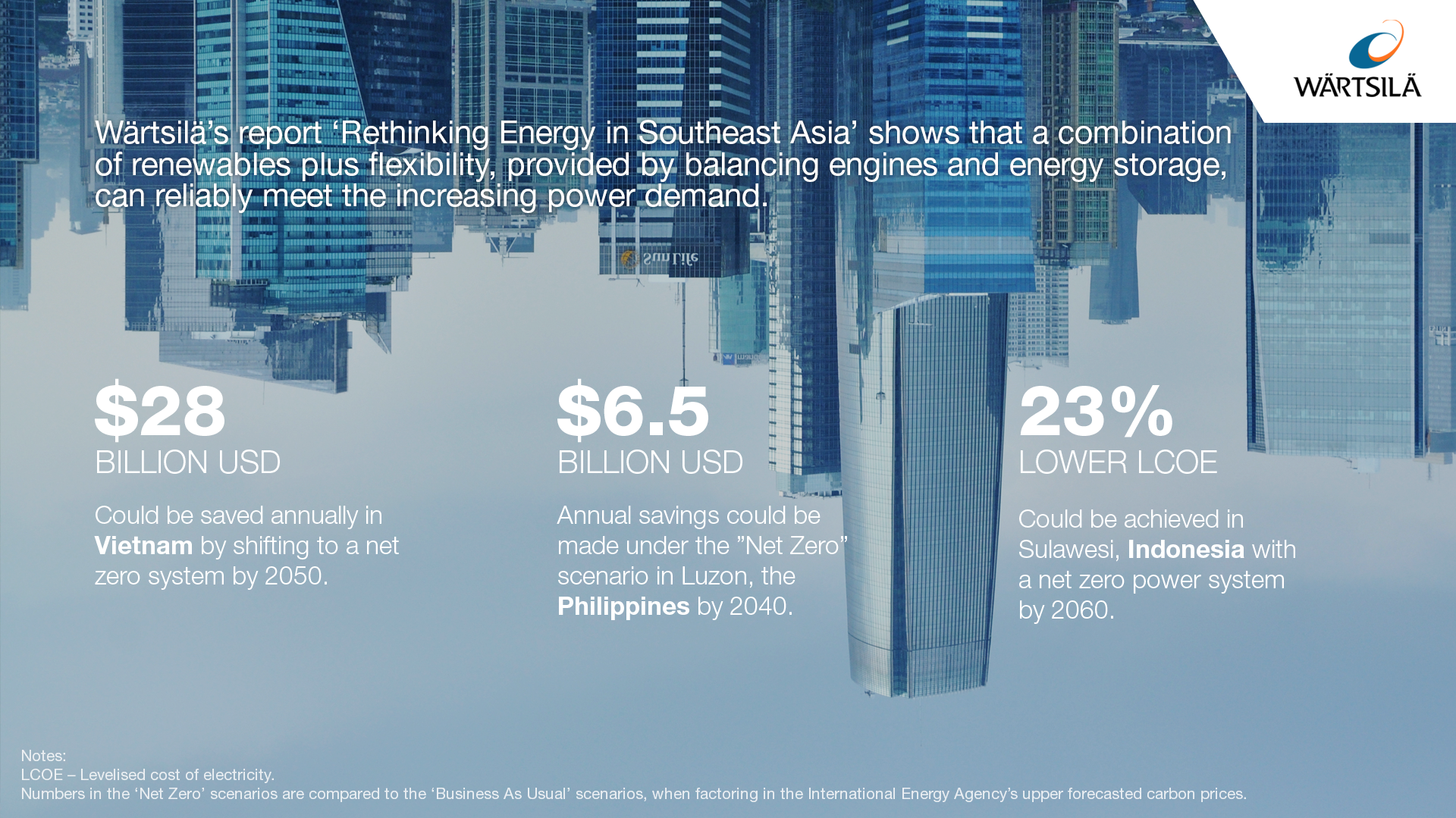 | Vietnam's smooth transition to net zero by 2050 Wärtsilä has revealed that renewable-based power systems, backed by grid balancing engines and energy storage, can enable Vietnam to reach net zero by mid-century whilst cutting the levelled cost of electricity (LCOE) by 20 per cent when taking into account future carbon taxes. |
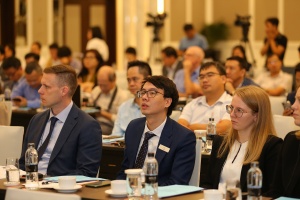 | Flexible internal combustion engines - key to net-zero targets The technology group Wartsila, a global leader in providing flexible energy solutions, organised a seminar in Hanoi on November 8 titled Flexible internal combustion engines: technologies & solutions for Vietnam's power system. |
What the stars mean:
★ Poor ★ ★ Promising ★★★ Good ★★★★ Very good ★★★★★ Exceptional
 Tag:
Tag:
Related Contents
Latest News
More News
- Bac Ai Pumped Storage Hydropower Plant to enter peak construction phase (January 27, 2026 | 08:00)
- ASEAN could scale up sustainable aviation fuel by 2050 (January 24, 2026 | 10:19)
- 64,000 hectares of sea allocated for offshore wind surveys (January 22, 2026 | 20:23)
- EVN secures financing for Quang Trach II LNG power plant (January 17, 2026 | 15:55)
- PC1 teams up with DENZAI on regional wind projects (January 16, 2026 | 21:18)
- Innovation and ESG practices drive green transition in the digital era (January 16, 2026 | 16:51)
- Bac Ai hydropower works stay on track despite holiday period (January 16, 2026 | 16:19)
- Fugro extends MoU with PTSC G&S to support offshore wind growth (January 14, 2026 | 15:59)
- Pacifico Energy starts commercial operations at Sunpro Wind Farm in Mekong Delta (January 12, 2026 | 14:01)
- Honda launches electric two-wheeler, expands charging infrastructure (January 12, 2026 | 14:00)



















 Mobile Version
Mobile Version